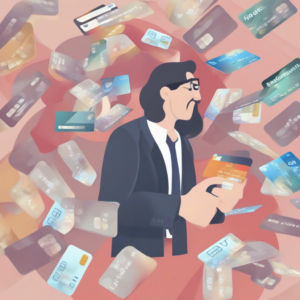Escape the Payday Loan Trap: A Comprehensive Guide to Debt Freedom
Payday loans, often marketed as quick and easy solutions to short-term financial needs, can quickly spiral into a debilitating cycle of debt. The high-interest rates and short repayment periods make it extremely difficult to repay the loan, leading to further borrowing and accumulating even more debt. However, escaping this trap is possible with careful planning, discipline, and the right strategies. This guide provides a comprehensive roadmap to help you break free from the burden of payday loan debt.
Understanding the Payday Loan Problem
Before diving into solutions, it’s crucial to understand why payday loans are so damaging. Their exorbitant interest rates, often exceeding 400% APR, make them incredibly expensive. Even a small loan can quickly balloon into a significant debt burden. The short repayment period, typically two weeks, puts immense pressure on borrowers who often struggle to repay on time, leading to rollover fees and further increasing the debt.
- High Interest Rates: The core problem is the excessively high interest rates that far surpass those of traditional loans or credit cards.
- Short Repayment Periods: The short repayment window creates a constant cycle of borrowing and repayment, making it difficult to break free.
- Rollover Fees: Inability to repay on time leads to rollover fees, compounding the debt and making it even harder to pay off.
- Debt Cycle: The high costs and short repayment periods create a vicious cycle that traps borrowers in a never-ending loop of debt.
Assessing Your Debt Situation
The first step towards escaping payday loan debt is understanding the extent of your debt. Gather all your loan documents, including the principal amount, interest rates, and any outstanding fees. Create a detailed list of all your payday loans, including the lender, loan amount, interest rate, and due date. This will provide a clear picture of your financial situation and help you prioritize your repayment strategy.
- List all loans: Create a comprehensive list detailing each payday loan.
- Calculate total debt: Sum up the principal amount, interest, and any outstanding fees for a total debt figure.
- Assess your income and expenses: Understand your monthly income and expenses to determine how much you can allocate towards debt repayment.
Strategies for Payday Loan Debt Repayment
Several strategies can help you tackle your payday loan debt effectively. The best approach will depend on your individual circumstances and financial situation. Consider a combination of these methods for optimal results.
1. Debt Consolidation
Debt consolidation involves combining multiple debts into a single loan with more favorable terms. This can simplify repayment and potentially lower your interest rate. However, securing a debt consolidation loan requires good credit, which might be challenging if you already have payday loans. Explore options like personal loans or balance transfer credit cards with lower interest rates.
- Research lenders: Compare interest rates and terms from various lenders offering debt consolidation loans.
- Check eligibility: Ensure you meet the eligibility criteria for a debt consolidation loan.
- Negotiate terms: Negotiate with the lender to secure the most favorable interest rate and repayment terms possible.
2. Debt Management Plan (DMP)
A Debt Management Plan (DMP) is a program offered by credit counseling agencies. They negotiate with your creditors to lower your interest rates and create a manageable repayment plan. A DMP can help you consolidate your debts and get your finances back on track. However, it may involve some upfront fees and require adherence to a strict repayment schedule.
- Find a reputable credit counseling agency: Research and choose a non-profit credit counseling agency with a good reputation.
- Understand the fees and terms: Clearly understand any fees associated with the DMP before enrolling.
- Commit to the repayment plan: Sticking to the repayment plan is crucial for the success of the DMP.
3. Balance Transfer Credit Cards
If you have good or fair credit, a balance transfer credit card can offer a lower interest rate than your payday loans. Transferring your payday loan balances to a credit card with a 0% introductory APR can give you time to pay off the debt without accumulating further interest. However, it’s crucial to pay off the balance before the introductory period ends to avoid high interest charges.
- Compare interest rates and fees: Look for cards with low or 0% introductory APR and reasonable balance transfer fees.
- Check eligibility requirements: Ensure you meet the credit score and income requirements for the chosen card.
- Create a repayment plan: Develop a strict repayment plan to pay off the balance before the introductory period expires.
4. Negotiate with Lenders
Directly negotiating with your payday loan lenders might be possible. Explain your financial difficulties and propose a repayment plan that you can afford. While lenders may be reluctant, offering a lump-sum payment, even if smaller than the total amount, can sometimes lead to a settlement agreement. Document all communication with lenders in writing.
- Prepare your case: Gather documentation to support your financial hardship.
- Be polite and professional: Maintain a respectful tone throughout your communication.
- Document all interactions: Keep records of all phone calls, emails, and written agreements.
5. Seek Financial Counseling
Financial counselors can provide personalized advice and guidance tailored to your specific situation. They can help you create a budget, develop a debt repayment plan, and navigate the complexities of debt management. Many non-profit organizations offer free or low-cost financial counseling services.
- Locate local resources: Search for non-profit credit counseling agencies or community organizations offering financial counseling.
- Schedule a consultation: Attend a consultation to discuss your financial situation and get personalized guidance.
- Follow the recommended plan: Adhere to the debt management plan provided by the financial counselor.
Preventing Future Payday Loan Debt
Once you’ve successfully escaped payday loan debt, it’s crucial to prevent a recurrence. Building a strong financial foundation is essential. This includes creating a realistic budget, establishing an emergency fund, and exploring alternative borrowing options for future financial emergencies.
- Create a budget: Track your income and expenses to identify areas for savings.
- Build an emergency fund: Save enough money to cover unexpected expenses, avoiding the need for payday loans.
- Explore alternative borrowing options: Consider personal loans, credit unions, or family/friends for future financial needs.
- Improve credit score: A good credit score opens doors to better borrowing options with lower interest rates.
- Seek financial literacy resources: Educate yourself on sound financial practices to avoid future debt.
Legal Protections
Be aware of your legal rights regarding payday loans. Some states have stricter regulations on payday lending than others. If you believe a lender has engaged in illegal practices, research your state’s consumer protection laws and consider seeking legal assistance.
- Research state regulations: Familiarize yourself with your state’s laws concerning payday lending.
- Report illegal practices: Report any illegal lending activities to the appropriate authorities.
- Seek legal counsel: Consult a lawyer if you believe your rights have been violated.





